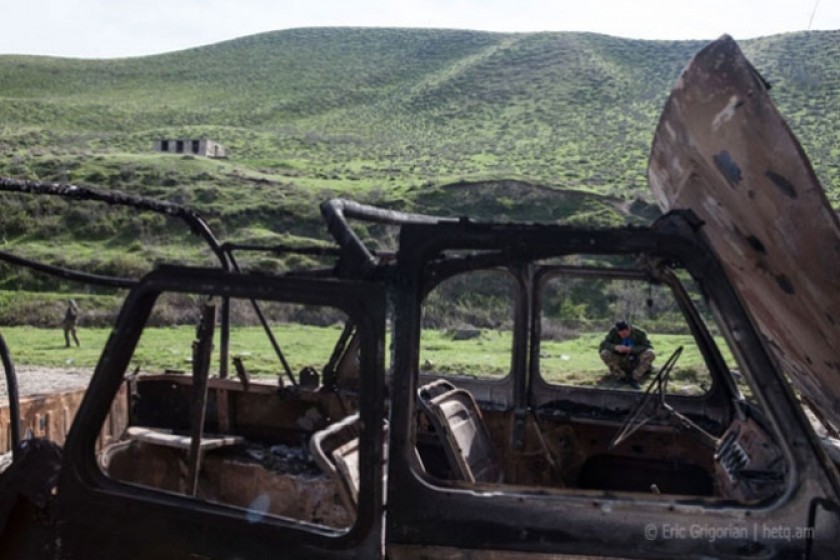
Two Good Things (for Armenians) to Come Out of the Recent Clashes
By Nareg Seferian
The Armenian and Azerbaijani media – as well as many international media outlets – devoted much space over the past week to cover the notched-up hostilities in and around Nagorno-Karabakh.
As one might have expected, Armenian and Azerbaijani websites poured out strong nationalistic rhetoric in all directions. Each side blamed the other for initiating and prolonging the escalation and for violating any cessation of hostilities. Each side continues to speak in terms of historical rights, traditional lands, and remembers horrors of the conflict of the late ’80s and early ’90s, especially massacres of innocent civilians.
From a broader, human perspective, truly all the violence, both old and new, remains reprehensible and regrettable. I don’t care whether or not I am Armenian and I am certain I speak for many millions across many borders when I say that I hope the fighting will stop, some sort of resolution will be achieved, one that will honour and remember all the dead as a lasting peace is established and maintained.
From a more Armenian perspective, however, there are a couple of other conclusions to draw.
I have long held a concern that any flare-up in fighting in Nagorno-Karabakh would result in… well, apathy. The social, economic, and political situation in Armenia has been quite discouraging in recent years. Such incidents as the attack on the parliament in 1999 were perhaps counter-acted by an economic boom in the early 2000s. But the March 1st violence of 2008, followed by years of lulls in growth, palpably-increasing rates of emigration, constant acts of ineptitude and corruption on the part of the government, improper voting, etc. and the fallouts of the above all give me the strong sense that the people of Armenia feel that they lack ownership of their country. I would have expected any fighting to be met with people shrugging their shoulders and saying, “Well, why should I care? These idiot politicians have made this mess, let them sort it out. I have a family to feed”.
Perhaps that was the response from some part of society in Armenia. But the greater impression I got this past week was a sense of determination, righteous indignation directed towards the Azerbaijani government, and a willingness to fight voluntarily by many. This gives me a boost of confidence that, at tough times, the people of Armenia can apparently get together. I am happy that my more cynical expectations were not met.
Secondly, this increase in hostilities only adds to Armenian arguments against any future in which the Armenians of Nagorno-Karabakh could see themselves a part of a peaceful and stable Azerbaijan. The same conclusion was easily drawn when the axe-murderer Ramil Safarov was released from Budapest and given a hero’s welcome in Baku – where, in fact, he had been sent to carry out the remainder of his jail sentence. The claims that the Armenians make about institutional discrimination and the continued state policy of hatred towards Armenians by Azerbaijan are clearly demonstrated through such events.
It is all very unfortunate.
I genuinely look forward to the day when Armenia and Azerbaijan (and Armenia and Turkey) will simply be neighbours with open borders and citizens who freely interact with one-another for work and leisure. The events this past week sadly shift that vision ever farther into the future. In the meantime, as far as the Armenian point of view goes, at least there are a couple of silver linings on the very dark and stormy cloud.
Nareg Seferian’s writings can be read on naregseferian.com.
 Videos
Videos Photos
Photos
Comments (9)
Write a comment